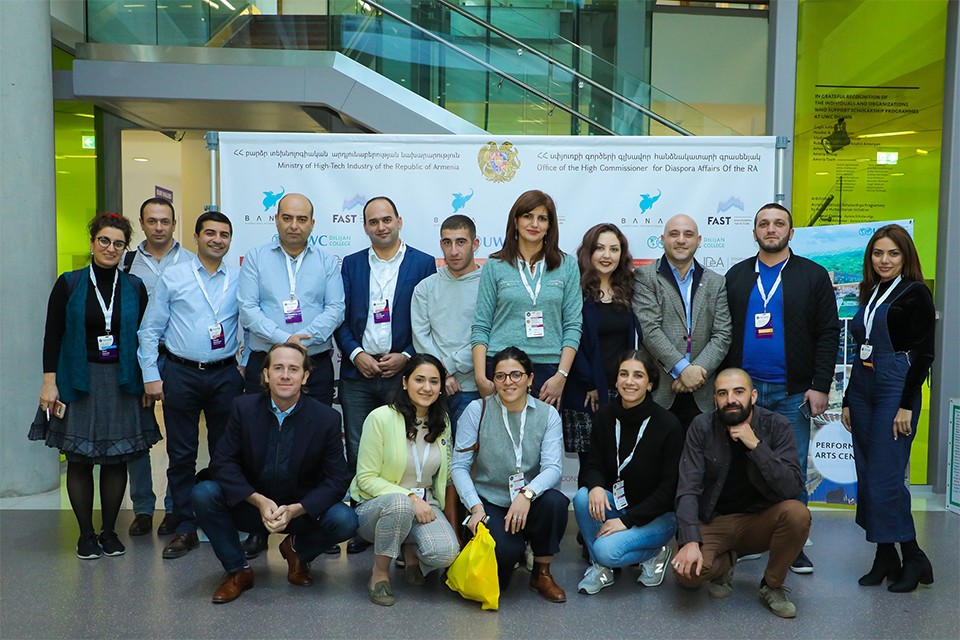13:36 | 25.12.19 | News | 12157
Digital transformation as a pledge of competitiveness for Armenian SMEs
Being considered as a key incentive of economic development, digitalisation and digital transformation are priorities for Armenia. Digital Transformation is considered to be a priority area also for the Government of Armenia.
The European Bank for Reconstruction and Development (EBRD) with the support of the European Union has already developed a comprehensive project of digital transformation of SMEs in Armenia in order to enhance competitiveness and promote company growth.
Mr. Jesus Lozano, the High-level Expert of European Innovation Council presented by the European Commission, who is also the key expert of the EBRD SME digitalisation project, is convinced that digitalisation makes SMEs more competitive, strengthens the economy, fosters business growth.
“Digitalisation is very important for SMEs, as we live in an era of advanced technologies, and even big companies fail without digitalisation. Digitalisation is also important in terms of value creation. If some time ago oil companies represented the biggest capital, today it is the IT companies with high technology advancement.” Says Jesus emphasising that nowadays not only production is digitalised, but consumption has shifted to online platforms.
First stage of the project is currently underway to study the needs of Armenian SMEs for digital transformation to see to what extent the SMEs in Armenia are ready for digitalisation. “We conduct studies to understand which processes most need to be digitised. There are still a large number of companies in Armenia where human resource management still involves immense paperwork, in some cases an excel program, with a high probability of possible errors,” states the international expert.
In more than ten sectors the need to digitise customer relationships is being studied to understand how to increase sales and gain more customers. Subsequently, the needs of digital transformation of various processes will be examined based on the fields of economy, such as agriculture, textile production and tourism, which, according to the expert, are of great importance for Armenia.
In Jesus’ view, complete digitalisation of any company can be rather costly, while digitalisation of only some areas is inexpensive. “At the same time, digital transformation needs to be differentiated from digitalisation and digital mentality, as, for example, in Armenia when an entrepreneur faces a problem, he would rather hire someone, than think of some useful technological solutions.” Hiring a new employee is more expensive, than digitising with software.
In many cases, online storage of information and e-commerce, according to the expert, are not expensive at all, especially for SMEs when it does not have to deal with automation. “In the case of SMEs, exact calculations can be done to identify to what extent digitalisation costs can be offset by increased turnover and income.”
After assessment of the digitalisation needs of SMEs, the opportunities for implementing digital transformation of various processes by tech companies will also be studied.
According to EBRD advisory team representative Armenuhi Arakelyan, digitisation saves both time and resources, but the challenge for SMEs in Armenia is to keep up with technological development. In Armenuhi’s opinion, the assessment of SMEs’ needs will be completed by 2020, based on the results, trainings will be provided for consulting companies on how to provide digital transformation of various processes in SMEs. “Measures will be suggested to develop a digitalisation strategy based on consulting companies' suggestions and implement it with companies that offer tech solutions.”

A significant part of SMEs in Armenia do not yet prioritize the benefits of the digital era showing no interest in digital transformation. The reasons vary from just avoiding “new” approaches to budget shortages. On one hand, there is insufficient knowledge about digital transformation; on the other hand, there is a gap between SMEs and tech solution providers / suppliers, despite the fact that there are many advanced technology and innovation companies in Armenia.
“Digitalisation is in line with EBRD’s activities already launched both in headquarters as well as in Armenia, offering solutions to increase capacity, enhance competitiveness, and make business globally competitive”, affirmed the EBRD representative. In her words, first of all, it will be demonstrated how digitalisation can help SMEs, afterwards working with consulting companies, digital solutions will be designed. “We will then try to understand the opportunities that will allow the EBRD, together with the EU, to make all these available to SMEs in order to grow their businesses, and to reach the international market.”
The EBRD will substantively support this project in all phases first ensuring the development of digitalisation strategies and polices with consulting companies through co-financing based on the results of the studies, and then identifying financial sources that will enable SMEs to make digital transformation a reality.

17:29 | 24.09.25 | Articles
Jacopo Losso on Cross-Border Investments and Why Armenia Attracts Angels










